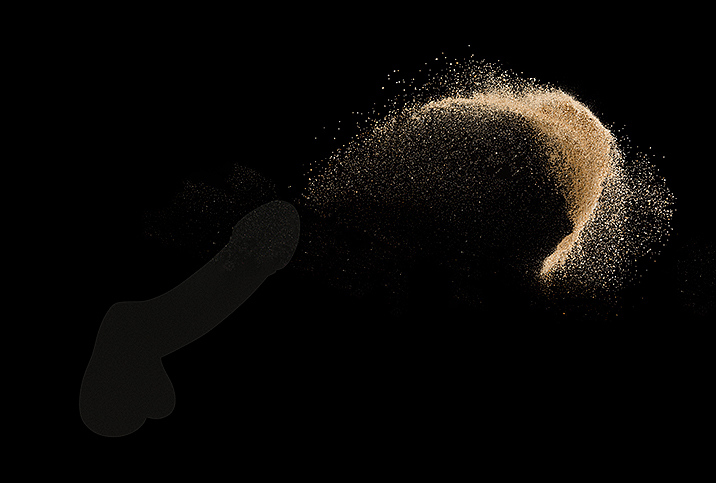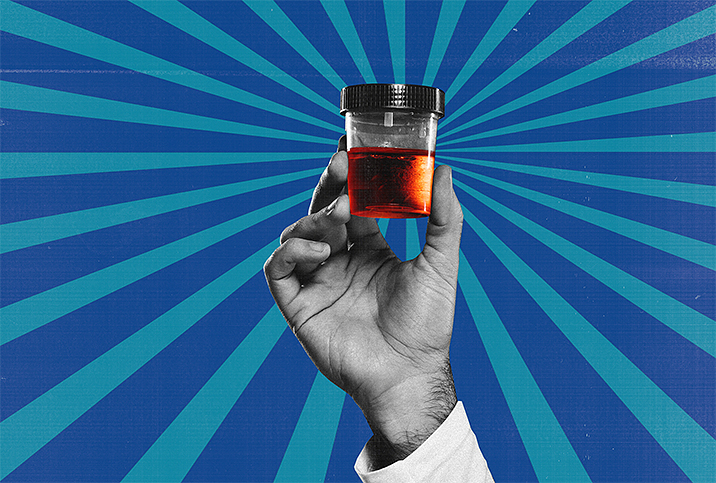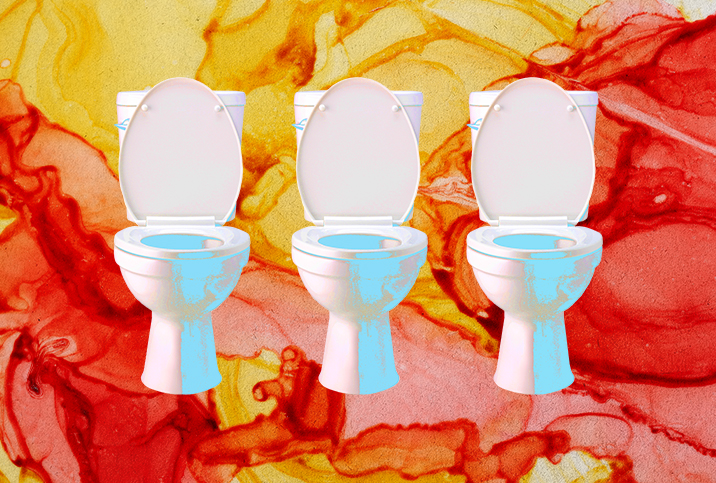I Have Cloudy Pee After Sex. Is That Normal?

If you want to know how disgusting humans are, hang out with an infant for a day or two. As adults, we learn to hide most of the splatters, sprays, squirts and smells that constantly ooze out of us. Truth is, even full-grown, we're still pretty gross.
One silver lining of our regular production of fluids: You can learn a lot about a person's health by examining what comes out of them.
Urine, in particular, can provide useful information, especially if it comes out cloudy or otherwise looks different than your personal normal.
Why does urine get cloudy?
Like almost every other aspect of our bodies, everyone's pee is different. Depending on your diet, how much water you drink, how recently you've exercised and if you've just woken up plus a host of other criteria. The appearance of your urine can vary greatly, even over the course of a single day.
So while it's difficult to say, "This is what normal urine looks like," we can say it should generally appear light yellowish and clear. If you're dehydrated, it may turn a darker yellow, but any hue beyond that—especially if it turns cloudy—could indicate a number of conditions.
Seeing cloudy pee can cause some distress, which Amy Pearlman, M.D., the director of men's health at the Carver College of Medicine at University of Iowa Health Care, has seen firsthand.
"The biggest concern that people ask about if they have cloudy urine or if their urine smells is if they have a urinary tract infection [UTI]," Pearlman explained. "And while sometimes that's the case, there are so many other reasons. And a big one is just, what is that person putting in their body? What are they eating and drinking? The more common symptoms of a urinary tract infection would be blood in the urine or pain with urination."
Kidney issues and cloudy urine
People who eat a diet high in fruits and vegetables with very limited meat, grains and cheese may notice cloudier urine. This diet would be considered low in potential renal acid load (PRAL), sometimes known as a low-PRAL diet.
People who have chronic kidney disease sometimes go on this type of diet, intending to reduce the acid their kidneys must process. But the result is a diet with higher alkaline levels, which can cause urine to become cloudy.
There's an extremely rare kidney condition called chyluria that can cause cloudy pee. Chyluria causes the lymph nodes to produce a substance called chyle, which appears in urine, turning it cloudy. Chyluria can be caused by parasites found in India, Southeast Asia, South America and sub-Saharan Africa, but there are fewer than 100 cases annually even in areas where it is more common, according to Cleveland Clinic.
A more common kidney-related cause of cloudy urine is kidney stones. Crystals of collected minerals and salts that accumulate in your kidneys can cause cloudy, smelly or bloody urine, as well as pain while urinating. Additionally, stones can cause pain in the side or lower back.
Generally speaking, if you have something more serious than dietary changes causing your cloudy urine, you're going to know it.
"It could also be from diabetes or kidney stones," Pearlman explained. "But most of those other things come with other symptoms. So, I would say, without any other symptoms, a big thing would be: Did you eat or drink anything different today or yesterday, and are you drinking enough fluids?"
Retrograde ejaculation and cloudy urine
One other possible culprit for cloudy urine is retrograde ejaculation.
When a man ejaculates, sperm enters the base of the urethra from tubes connected to the testes called the vasa deferentia. Once there, it mixes with fluid from the prostate and seminal vesicles, and is then forced out through the urethra by contractions of muscles in the pelvis.
Normally, during this process, a duct called the bladder neck closes to prevent the semen from taking the path of least resistance and entering the bladder, instead forcing it to travel out through the penis. Sometimes, this duct doesn't function correctly, allowing the semen to enter the bladder, where it mixes with the urine until it's expelled during urination.
The result is a dry or nearly dry orgasm and cloudy urine—harmless but capable of causing distress and hampering reproduction.
"Retrograde ejaculation isn't something I see very regularly, but it's something I do see," said Neel Parekh, M.D., a male fertility specialist at Cleveland Clinic. "If I'm seeing patients for ejaculatory or fertility issues, I ask them if they see anything come out when they ejaculate, or very little. It's not a perfect test, but then I'll ask them when they pee afterward if they see cloudy urine."
Oftentimes, retrograde ejaculation is caused by certain alpha-blocker prostate medications, such as tamsulosin (brand name: Flomax), and can be treated by switching to a different medication.
The bottom line
At the end of the day, cloudy urine isn't likely to be a sexually transmitted disease (STD) or any other serious condition, unless it's accompanied by other symptoms.
However, if you notice changes in your urine that last more than a day or two, it's always a good idea to visit your doctor, just to be certain there isn't anything more serious going on.
"It's not an indicator of an infection or bladder cancer or anything like that," Parekh explained. "But it's something you should bring up with your doctor. It would just take a quick urinalysis."


















